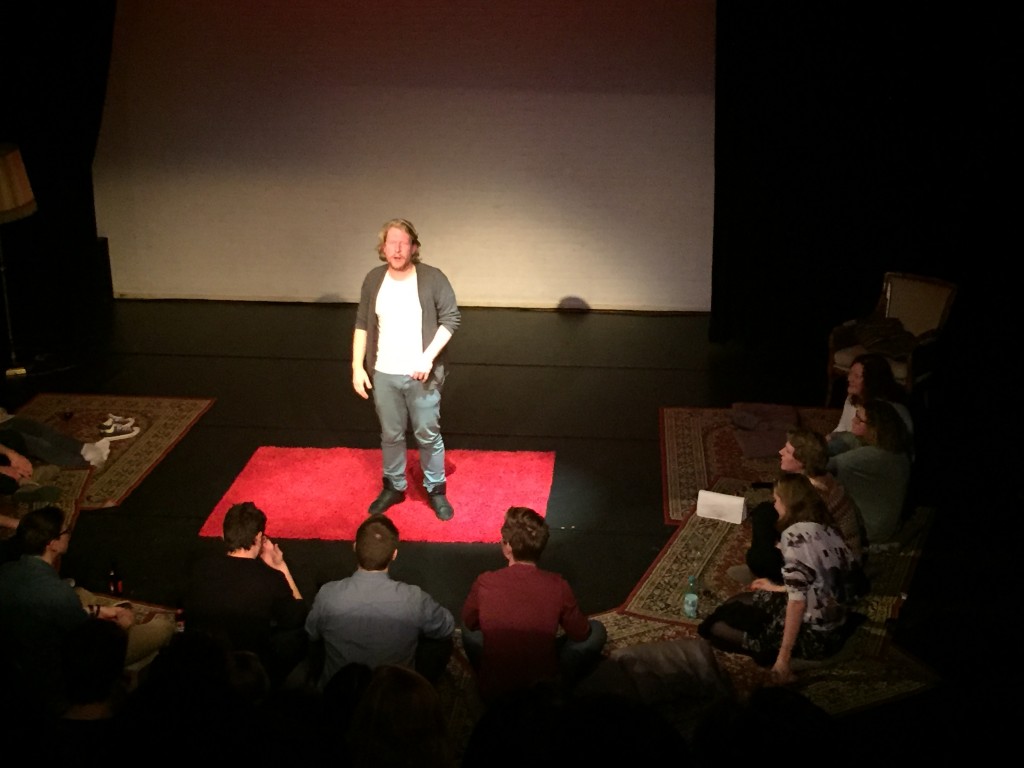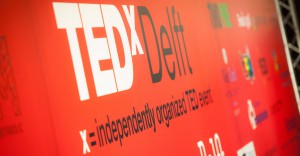On Thursday, April 24th TEDxDelft organized its third cinema event, entitled “Vermeer then and now,” to discuss the commercialization of art. “Vermeer is returning to Delft,” TEDxDelft project manager Molly Quell said. “So we wanted to do something about this.”
The event was hosted by Anika Duut van Goor, events coordinator for TEDxDelft, and special guest René Jacobs, an artist from Delft. On March 25th a famous Vermeer painting, Het Straatje (The Little Street) returned to Delft. Jacobs talked in-depth about Vermeer, starting off by talking about his own version of The Little Street, which he called The Rundown Little Street. “When I paint a painting of Vermeer I want to get a message across,” Jacobs says. He draws his inspiration from what he sees in the world he feels is wrong and uses that when he paints. To Jacobs, Vermeer’s paintings have something else to them. “There is something special being done with the colors in his paintings.”
“How did you become an artist, a painter?” Duut asks. Jacobs recounts how he started out as an artist relatively late. “I studied economics, I loved mathematics,” he says. He worked for many years, but eventually started making art. He tried writing at first, though he quickly found out that it was not for him. He took a liking to painting, so much so that he eventually would start his own gallery. “My first painting was of a park in Rotterdam. The customer probably wanting something bright, but it turned out grey and gloomy,” he laughs.
Jacobs is saddened when thinking about the way the paintings are made is changing. Technology continues to evolve, and art follows along. “Nowadays production is very different from what it used to be. Sometimes I do not even see the physical painting anymore,” he says. “I make a design in Photoshop, send it to the customer. They agree, then it goes to a printing-house, and from there to the customer.” So how would an artist know if the painting is any good if the artist does not see his work anymore? “Seeing it in front of you is far more satisfying,” Jacobs concurs. “But it all goes digitally, you do not see it. There is far more distance between you and the work.” When asked if Jacobs sees any similarities between him and Vermeer, there is one, one which exemplifies their love of painting: “The stroke of the brush on the canvas.”
On Friday, April 15th TEDxDelft will host its main event of 2016 at TU Delft. Buy your tickets now, and come celebrate the universal genius.




